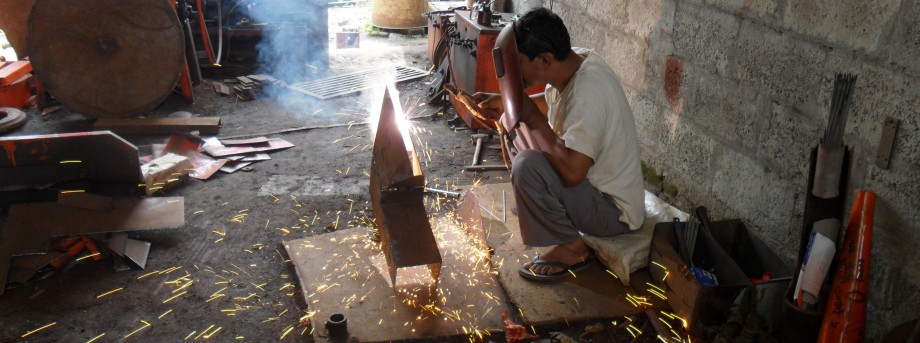The University of Nottingham
 Exchange online
Exchange online
Research Exchange
Knowing the Score-Stove™ – cooking with sound

A revolutionary stove and electrical generator is currently being tested at local universities in Bangladesh and Nepal under simulated conditions it was designed for — rural villages.
The Score-Stove™ project brings together researchers from across the world to develop a wood-powered electrical generator capable of cooking food.
Led by the Department of Electrical and Electronic Engineering at The University of Nottingham, the project team uses thermo-acoustic technology to convert the heat from biomass fuels into sound then electrical energy, surplus heat powers the cooking.
The generator has already broken electricity-production records in the lab. The thermo-acoustic wood-powered engine built by Score-Stove™ partner City University produced 23 watts. And an electrically-heated demonstrator rig built by the Nottingham team produced 36 watts of power.
Now researchers at The University of Nottingham’s Malaysia Campus, Kathmandu University, the Bangladesh University of Engineering and Technology and partner charity Practical Action, will adapt the stoves to replicate power production in their local environments. Energy company Alstom has provided €99k of funding for field trials in Nepal. And stimulated by a lecture to Engineers Without Borders, four Nottingham students in July 2012 installed a Score-Stove™ at Kathmandu University.
Score project director Paul Riley said: “The successes in the lab are fantastic achievements for the project, but they’re only the beginning for us. The Score-Stove™ generators will be used in areas across a world which has limited access to a reliable power source. We must adapt the lab version for each area, taking into account local biomass fuels, types of pots and pans used to cook, along with the everyday tasks the unit will be required for.
“It must also be able to be produced affordably and locally, rather than shipped in from overseas at great expense. That means assessing local access to materials like stainless steel and looking for workable alternatives where they’re not readily available.
“Adaptability is hugely important. We must preserve the excellent levels of performance that we’re seeing in our labs. The tremendous support we have from our partners across the academic, charity and energy sectors is instrumental in this.”
Joe Jamieson, Group Head of Aerodynamics at Alstom UK, said: “This technology is transformational and highly novel. It helps to solve a very serious problem by reducing the risk of death from cooking smoke, which kills more people than malaria each year. It also provides electricity in a safe and sustainable way.
“The Alstom Foundation is helping to bring new innovations to market that will change the prospects of so many families in developing countries.”
For more information on the Score-Stove™ project, visit www.score.uk.com
Leave a Reply
Other

Top prize for quantum physicist
A University of Nottingham physicist has won a prestigious medal from the Institute of Physics for […]

Zero carbon HOUSE designed and built by students comes home
Design and construct a low cost, zero carbon, family starter home, transport it to Spain, build […]